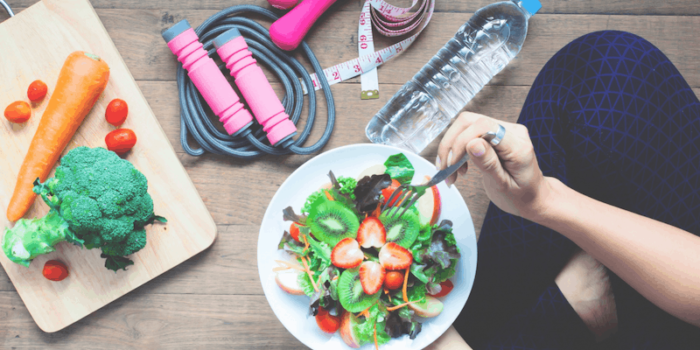I recently stumbled on this masterpiece from exactly 1 year ago and it got me…
Super Fit Supplements – What You Need To Get Jacked & Juicy

In a recent post I broke down my diet, meal-by-meal, macro-by-macro. But I left out some of the supplements I take alongside the diet.
In the interests of completeness, here’s the skinny of my supp’ game. Or my version of it, at least.
Nutritional supplements are big business. Like, multi-billion dollar business. You only need to drive down the high street to see supplement shops nestled amongst the pharmacies and the butchers, with their brightly coloured baubles blaring out, trying to entice you in.
Once you step over the supplement shop threshold, your senses are subjected to an all-out attack by massive containers bedecked in the aforementioned gaudy colours and words like:
- Micronised
- Instantized
- Bio-fermented
- Vegan
Okay, the last one is from my all-natural protein and not a made-up pseudo-science word. The others: probably they are made up.
And, to be crystal clear, these words are from products in my kitchen and I go out of my way to avoid the out-landish products and their maddening promises comprised mostly of made-up words.
Can you imagine what product development workshops are like at these organisations?
Product guy / scientist: Hey, we’ve developed a new product that increases energy.
Sales guy: What’s it called?
Product guy / scientist: Hmmm…not sure yet but it increases energy & build muscle. Could we just say that?
Sales guy: No! It’s a proprietary blend, micronised, vascularity enhancer that uses rapid-absorbtion principles for the ultimate pump. We’ll call it: Vulcaniser Pro X. We’ll package it in a way that will accelerate epileptic seizures and sell millions…We’ll make millions, no, billions, no trillions…

And the tragic thing is, there are clearly plenty of gym-bros out there (bless ‘em) who are hoovering this sh*t up and spending as much on supplements each week as they do on real food.
That’s why the stores are popping up on the High Street. They’ve got to be able to make rent.
And we haven’t even got onto vitamins yet. Jeeeesus.
So…in an attempt to demystify some of the endless and nebulous information that proliferates online and in print, I’m going to share my own research into this topic and make a few recommendations to save you time and money.
The thing to remember (and a disclaimer of sorts) is that nobody is completely aligned on nutrition – everybody has something to sell or an angle to promote, whether it’s:
Paleo
Ketogenic
High Fat
Low Carb
Slow Carb
Anabolic
Atkins
Vegan
Intermittent Fasting
Anabolic Fasting
Many of these can work well, depending on what they’re being used for.
If you’re a mesomorph or endomorph body type and looking to drop 10 kilos, then intermittent fasting can be fantastic. But it takes iron willpower.
In an ideal world, you wouldn’t need supplements at all, you’d survive on a ‘Just Eat Real Food’ protocol but that’s not always practical for busy people with families and regular jobs.
[As a side-note, having spent a ton of time looking at this, the bodybuilders and physique models seem to have this dialled in with their lean meat, broccoli & sweet potato and rice. It’s just that eating literally is their job and they eat the same thing 4 x per day which must get tough.]
So here’s what has worked for me and what there seems to be a general consensus about, from a range of different viewpoints.
Nothing more, nothing less.
The Supplements You Need
1. Protein
It’s reasonably safe to say that, regardless of how often you eat, you’re not consuming enough protein.
If you’re in the gym often, you need protein for its ‘building blocks of muscle’ benefits: to aid repair and growth.
If you’re doing plenty of cardio-based training or some bootcamp or HIIT-style training, you need protein to repair the muscles and stop them from breaking down and (effectively) shrinking.
Most meats contain between 20-30g of protein per 100g so even if you have a meat and vegetable-based lunch and dinner, you’re still probably not getting adequate protein.
If you’re doing no training whatsoever, I’d posit that you still need more protein to prevent ongoing catabolisation of the muscles during the rigours of daily life. You know, to avoid the dreaded ‘dadbod’ situation whereby you end up with a fat mid-section and a thin upper-body.
As a former colleague once remarked, dejectedly: I’m currently fat AND thin at the same time.
Nobody wants that.
Different Types Of Protein
The most common forms of protein are whey-protein-isolate (WPI) and casein. Casein has a slower release and is often recommended as a night-time protein (i.e. just before bed to keep the muscle flushed with ‘tein throughout the night).
Whey protein is the most common and most versatile so if you can only afford one, the literature I’ve read and heard points to this.
I use a plant based protein that is suitable for vegans.
How I Take It
A plant-based (brown rice) protein powder with 250-300ml of milk 3 x per day.
I have one first-thing in the morning before I go out to coach. I have another mid-morning and one mid-afternoon.
I have them with full-cream milk which is a complete source of macro-nutrients and I’m not sufficiently worried by full-fat to avoid it. In fact, I gravitate towards it.
Sun Warrior is a reputable brand. My current brand is Ezy Protein. Both taste pretty good. 180 Nutrition is local to the Eastern suburbs of Sydney. I haven’t tried it but people I know rave about it.
2. BCAAs
Branched-chain amino acids are even more effective than regular protein in maintaining lean muscle or, rather, fighting the evil demon that is muscle-loss.
BCAAs increase the rate of protein synthesis and the body’s capacity for protein synthesis, as well as fighting the effects of exercise on the muscle (which is to degenerate it).
There’s less pseudo-science and more actual science on BCAAs here.
How I Take It
During my ultra-marathon days I’d sup this stuff during long runs (3 hours +) to arrest the catabolic effects of steady-state cardio.
Now I have a couple of scoops of this as an intra-workout drink when at the gym or doing an outdoor workout, or football (soccer) training and matches. I also throw back a bottle of it (50ml) after shorter runs.
Ideally, I’d be supping this from a 2L bottle throughout the day but I’m not that organised.
I’m currently using this brand – Optimum Nutrition
3. Creatine Monohydrate
Creatine is widely researched and widely acknowledged to assist with muscular performance and recovery.
Specifically it supplies fast-twitch muscle fibres with energy which helps muscular performance and reduces muscular fatigue during explosive exercise.
As well as being beneficial for short, explosive bursts, creatine has been found to aid recovery in longer distance runners by reducing the effects of cell damage post-race.
It’s also widely cited as a supplement to take across a range of sources from Tim Ferriss in the 4 Hour Body to various fitness gurus and bodybuilders I see on social media.
It’s this universal take-up and coverage that has led me back to creatine, especially as I jack up my training to 2 x per day a lot of days.
Creatine is fairly cheap compared to a lot of supplements.
https://www.bodybuilding.com/fun/drobson181.htm
How I Take It
15g in 150ml water morning and night. Flavourless and easy to swallow, this quickly becomes an ingrained habit.
Other Supps To Consider
4. Glutamine
This is a new one to me and I haven’t tried it yet but I’ve heard of enough strong and jacked looking mofos supplementing with it for it to peak my interest.
It also seems to have digestion-related benefits.
How I Take It
I haven’t yet.
5. Greens Powder
If you don’t get enough vegetables in your diet or need to up your vitamin and mineral intake on the run, you could consider this.
I’ve tried adding it to green smoothies in the past. It was okay but doesn’t come close to the goodness of chopping up a few greens yourself and tossing them into the blender.
How I Take It
Added to a green smoothie or simply mixed with water.
6. Tumeric
Tumeric is raved about for it’s health benefits, predominantly because of the present of curcumin which has anti-inflammatory properties and anti-oxidant properties.
How I Take It
Besides dusting chicken with it before roasting / baking, or cooking Indian dishes, I add a teaspoon to a cup of warm milk (microwaved for about 35 seconds) for a Tumeric tea.
7. Fish Oil
Again, there is enough consensus across various sources for me to have these in the cupboard.
You need to consume significantly more than the recommended dose for them to have any meaningful effect, though.
Dan John suggests taking “enough to make you runny,” which gets straight to the point, I suppose.
How I Take It
Pop around 12 capsules a day. I don’t use it daily or even weekly any more.
8. Magnesium
Magnesium can help with sleeping and the ‘twitchy legs’ that runners and cyclists will be familiar with (runners probably more so than cyclists because they’re actually doing some work :)).
These have definitely worked for me in the past, although now I baulk at paying $20 for a bottle and seeing the Blackmore’s share price go up by about 3000% in three years.
How I Take It
A couple of tabs before bed used to do the trick when I was running a lot more than I am now.
Summary
It’s easy to be blinded by the hyperbole around a multi-billion dollar industry and the amount of power that the supplement and, increasingly, the vitamin market now has on where our consumer dollars go.
Don’t believe me?
Check out the aisles of a pharmacy nowadays. There’ll probably be an entire aisle / wall devoted to a single brand of vitamins, most of which are nothing more than placebos containing a fraction of what they purport to.
But some supps can be helpful when consuming real food isn’t an option.
I don’t have all the answers, or even a fraction of them – I’m just making a semi-educated best-guess based on what I’ve picked up from others.
And I haven’t even started trying to sell you exogenous ketones yet.
SFD
This Post Has 2 Comments
Comments are closed.



Great post. A lot of people don’t realize the importance of all these you listed. What store do you typically go to (is that Vitamin Shoppe)? Know you said you haven’t taken Glutamine yet but believe me you’ll love it. Also, take Vitamin D and C. B12 pretty important too but you nailed it with the list. Probably would put magnesium up a little more but your order is even dead on. Thanks, Darren
Thanks Darren. I get my supplements from a discount supp store in Bondi Junction, Sydney, Australia. It’s quite a bit cheaper than a lot of the online places, even. I’m excited to see what benefits I get from glutamine.